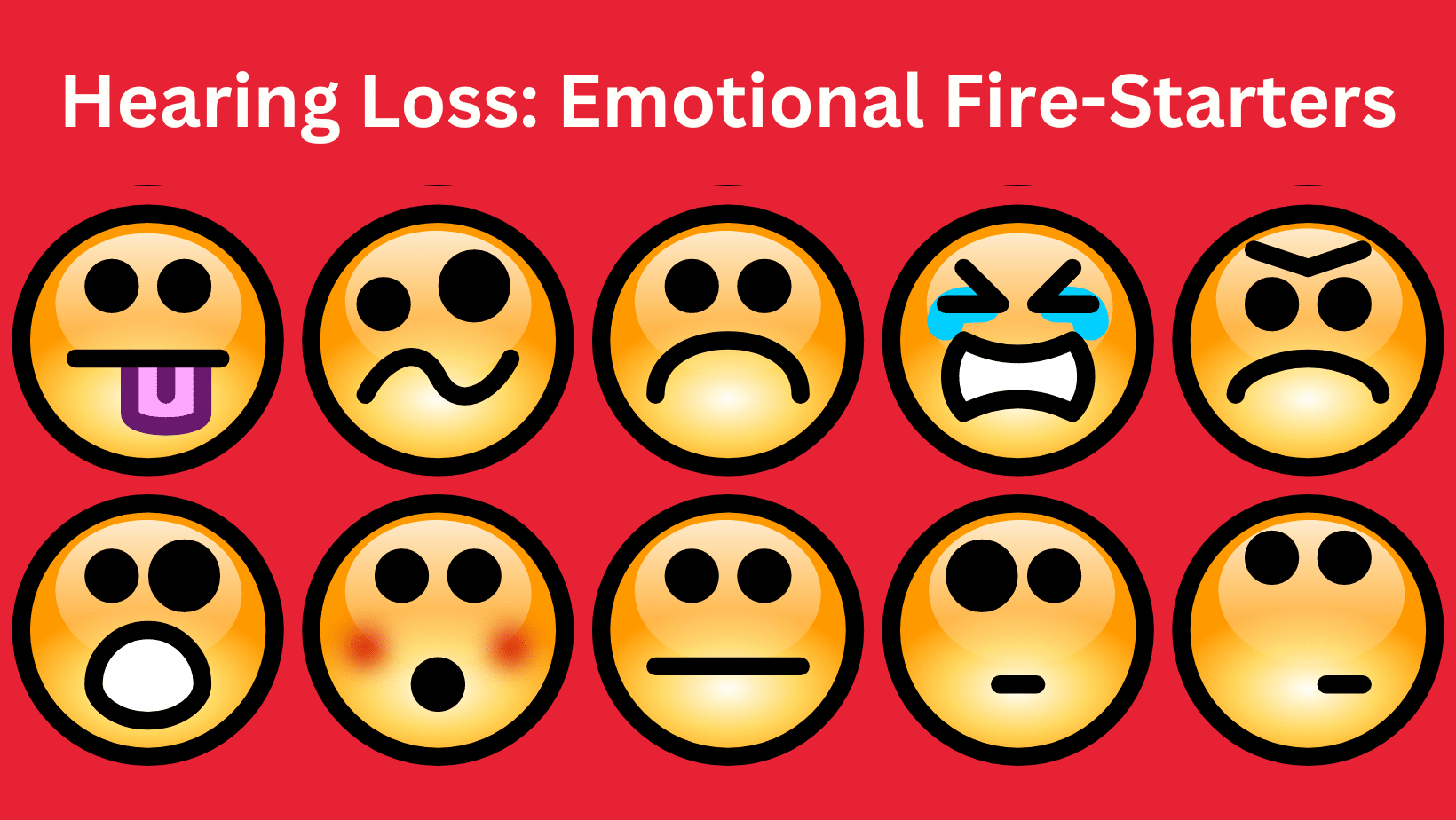What sparks your emotions in day-to-day life with hearing loss? What sets you off?
If you’re like me, you have a long list of emotional fire-starters. In fact, mine’s so long that I’ve grouped it into three main sources.
For most of us, by the time we receive a definitive diagnosis of hearing loss, we have already experienced many of its hallmark negative emotions. Frustration, anger, grief, worry, sadness, isolation and loneliness. (A very few people embrace their diagnosis with joy, such as comedian Kathy Buckley who grew up in the belief she was not intelligent and was therefore lesser than other people. Then came the life-changing discovery that she was deaf.)
What causes our negative emotions? For me, it’s a three-way tie of emotion categories.
Its Life Imprint! Hearing loss impacts our overall life. It seriously affects our communication, which is the glue that connects us to other people and our lifestyle. Because of the age-old stigma, we worry that people will think less of us. Our self-esteem may take a beating. And having hearing loss means changes to how we do things! We must change communication processes in our work and in our relationships. Group conversations, social events, and even watching tv involve making permanent changes so that we can participate and understand.
How Other People Deal with It! Because other people, even those closest to us, do not have hearing loss, they find it difficult to deeply understand ours, and that is understandable. They can’t always predict or identify when we’re struggling. They find it next to impossible to remember basic communication necessities from one conversation to the next. So we tell them, over and over again. Also, it’s just plain annoying when people who have good hearing, don’t appreciate the gift of it.
Me! I Frustrate Myself! Not only must we repeatedly express our needs to other people, we must also remind ourselves! We should know this stuff! Some examples:
- When I’m not following a conversation, I strain to hear, pushing my ear muscles to perform a miracle. This, of course, never works because our ears don’t have those kinds of muscles! Our pets can waggle their ears, but the human pinnae (those side-of-the-head earflaps) do not bend, stretch or extend at the command of our brain. Still, I sense an inner stretching to connect.
- We ask people to repeat themselves two or three times. Asking for more than one repeat of the same phrase, without giving instructions to rephrase or speak up, fits the description of ‘insanity’: doing the same thing over and over and expecting a different result.
- And then, not having explained our needs, we retreat into bluffing, an emotional powder keg. Pretending that we understand when we wouldn’t be able repeat it back what was said, or even identify the topic being discussed – is the biggest source of self-frustration in the hearing loss book! Although I am a passionate anti-bluffing crusader, it’s human nature to bluff when the hearing gets hard. And I am very good at it. I can make you think you are the most interesting person in the world and that I’m following your every word. But where does this bluffing get me? Nowhere.
- Hearing envy can eat you up. But, just sometimes, mildly, I do envy the ability of other people to hear. I envy people who can tell where a sound is coming from, every single time. But most of all, I envy anyone who doesn’t have tinnitus.
- Etc., etc., etc.
The good news is that in all the above ‘emotional categories’ exists the potential for change, for improvement of our hearing loss journey. When we grow in our knowledge and experience, we learn to handle the emotional challenges. This year’s theme of World Hearing Day is ‘changing mindsets’. When we do that, life gets easier and communication gets better.






